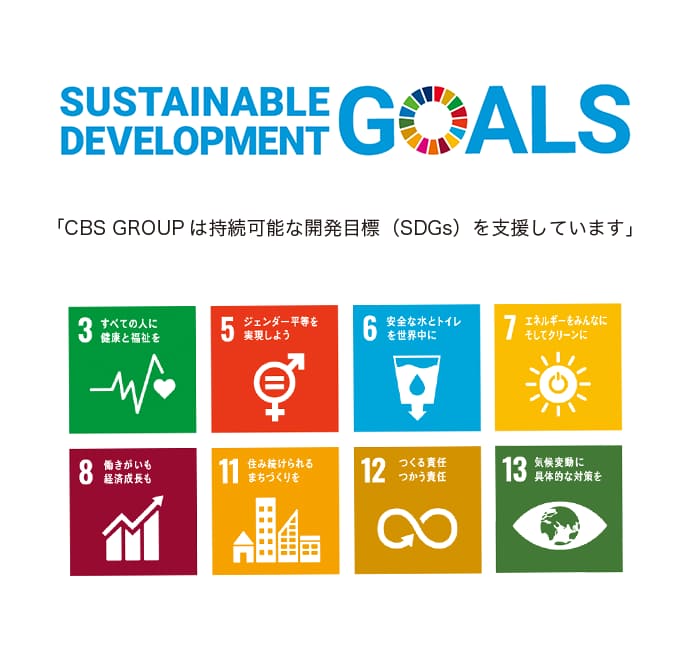持続可能な開発目標
Sustainable Development Goals:SDGs

持続可能な開発目標(Sustainable Development Goals:SDGs)(https://sustainabledevelopment.un.org/sdgs)
として知られる期限を定めた測定可能な17の目標は、「2030アジェンダ」の中核をなす。169のターゲットと230の指標からなり、人間と地球の「やるべきことのリスト」であり、持続可能な未来のための青写真である。
開発目標は、持続可能な開発の社会、経済、環境の側面を統合したもので、互いに独立したものではなく、統合された方法で実施されなければならない。
開発目標は普遍的なもので、先進国、開発途上国、また中所得国を問わず、全ての国に適用され、その一方で国家の発展や能力の度合いが考慮される。貧困を終わらせるには経済成長を確立し、教育、保健、社会的保護、雇用の機会など、広範にわたる社会的ニーズに取り組み、それと同時に気候変動や環境保護の問題に取り組む必要があることをSDGsは認識している。
2030アジェンダは、アジェンダとその実施は国家の責任であるが、包摂的でなければならないと強調している。成功するには、グローバル、国家、地域、地方のレベルで、すべての人々やステークホルダーによって行動がとられなければならない。SDGsは、好ましい変化を行う為にすべての人を団結させる。
17 Measurable goals with limited terms(https://sustainabledevelopment.un.org/sdgs)
form the core of the 2030 Agenda for Sustainable Development. They are comprised of 169 targets and 230 indicators that express the "list of things to do " by people and the planet, and a blueprint for a sustainable future.
The Development Goals integrate the aspects of society, economy, and environment for sustainable development. They should not stand independent of each other and must be implemented in an integrated way.
The Development Goals are universal and apply to all countries, whether they are developed, developing, or middle Income couintries, taking into considerations a nation's development and abilities. SDGs recognize the necessity of establishing economic growth as well as the extensive social needs for the fields of education, healthcare, social protection, and employment opportunities to end poverty. At the same time, SDGs also recognize the necessity of working on climate change and environmental protection issues.
The 2030 Agenda emphasizes that each country is responsible to the 2030 Agenda and its implementation, but it must be Inclusive. For it to be successful, all people and stakeholders at the global, national, regional and local levels must take action. These SDGs unite all people in order to achieve favorable changes.